The making of the modern tractor
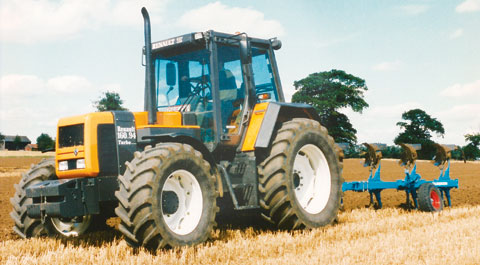
Today’s tractors offer levels of efficiency, power and driver comfort that were not even dreamt of just a few decades ago. Mike Williams looks at who first developed some of the performance-boosting features we expect on a modern tractor.
The first tractors arrived just over 120 years ago. They could be driven from farm to farm for powering stationary equipment such as threshing machines, but that was all they could do, and concern for driver comfort and safety was virtually non-existent.
Since then a stream of design improvements has transformed tractor versatility and performance while providing a safer, more comfortable working environment that can help to increase productivity.
Here we look at some of the biggest innovations that have helped shape the modern tractor.
INNOVATION:Approved for farm-grown fuel
MAKER:Ivel, 1901
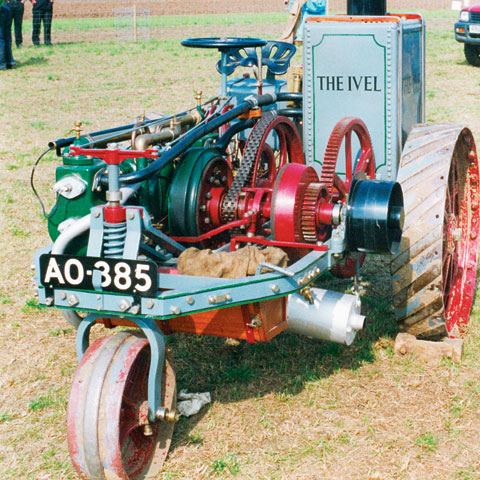
The cost of tractor fuel has caused concern for years and Dan Albone was among the first to think farm-produced fuel could be cheaper and encourage more tractor sales.
His Bedfordshire company built Ivel tractors from 1901, when petrol was equivalent to 1.5p per litre. But when he demonstrated his tractors fuelled with alcohol produced from home-grown cereals or potatoes, the idea attracted little interest.
INNOVATION:Front axle suspension
MAKER:Ford, 1906/7
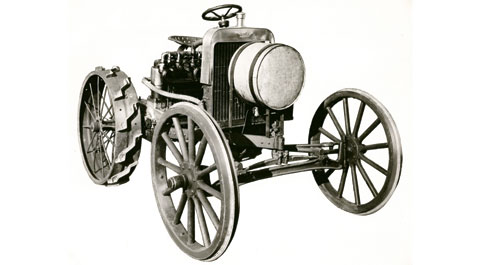
Henry Ford’s first experimental tractor was built in 1906-07 and one of the surprise features was a leaf spring suspension on the front axle.
Ford wanted to include components from his car factory to reduce his tractor production costs, and the front axle and suspension came from a Ford Model K car.
The front suspension idea was abandoned before Ford’s first production tractor arrived in 1917.
INNOVATION:Power take-off
MAKER:International Harvester Junior, 1917
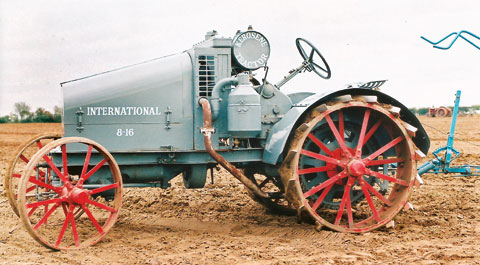
Advanced features on the 16hp IH Junior tractor included the downward sloping bonnet line for good forward visibility, and it also set the industry standard for tractor power take-offs.
Various belt- or gear-type pto drives had been tried by other manufacturers, but it was the IH pto that was eventually chosen as the industry standard for shaft size, speed and direction of rotation.
INNOVATION:Electric starting
MAKER:Moline Universal, 1918
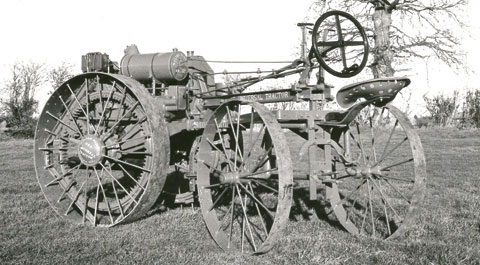
Electric starting became a necessity in the 1950s, when high-compression diesel engines were increasingly popular, but spark ignition engines were easier to crank and electric starting was considered an unnecessary luxury for a farm tractor.
The Moline company was the first tractor manufacturer to include battery-powered electric starting as standard equipment, available from 1918 on their Universal tractor with an 18hp four-cylinder engine.
INNOVATION:Diesel power
MAKER:Benz-Sendling, 1923
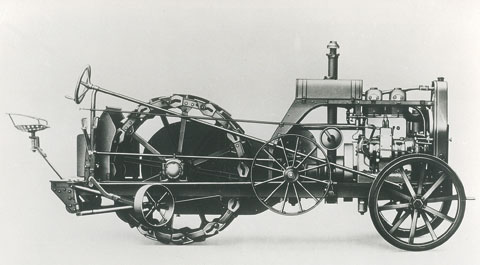
Most people now associate Benz with cars through the Mercedes-Benz brand name, but in the early 1920s it was among the first diesel-powered truck manufacturers.
The company also built a three-wheeled ploughing tractor called the Benz-Sendling and, in 1923, this was available with the 27hp twin-cylinder Benz truck engine – the world’s first diesel powered tractor.
Sales were disappointing because the engine was expensive and few farmers understood the benefits of diesel power.
INNOVATION:Inflatable tyres
MAKER:Allis-Chalmers Model U, 1933
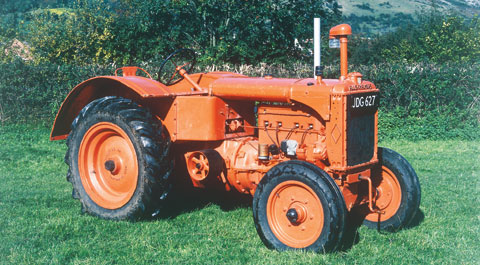
Both solid rubber and high-pressure inflatable tyres were unsuitable for field work, so steel wheels and crawler tracks were standard equipment on pre-1930s tractors.
The breakthrough came in 1932, when Allis-Chalmers tried a set of old low-pressure aircraft tyres on a Model U tractor.
The tyres – similar to those we use now – allowed faster road speeds and better traction and, in 1933, the 33hp Model U became the first production tractor with the new tyres.
INNOVATION:Rear linkage
MAKER:Ferguson Black Tractor, 1933
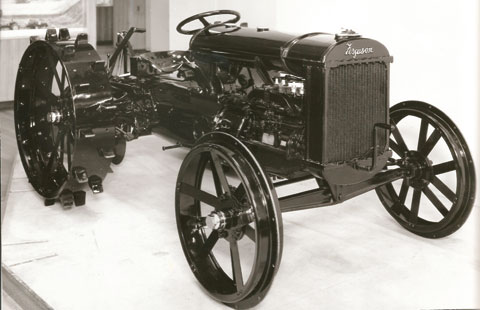
Harry Ferguson spent 15 years developing his hydraulically operated implement attachment and control system, and the next stage was to build a special tractor to demonstrate its benefits and attract a manufacturer who would put it into production.
The tractor, the first with the Ferguson System, was built in 1933 with an 18hp engine and it was called the Black Tractor because of its colour.
INNOVATION:Power-operated hydraulic brakes
MAKER:John Deere 10 Series, 1960
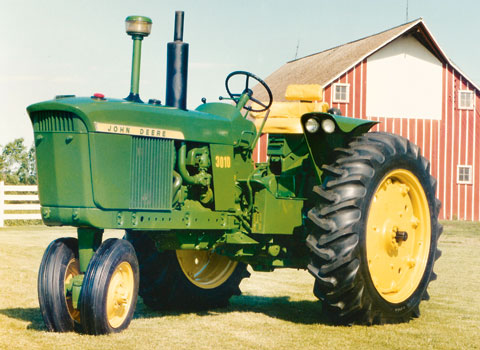
For more than 40 years, John Deere’s tractor success relied on its two-cylinder engines, but the first batch of a totally new tractor range arrived in 1960, when the four 10-series models were introduced, including the 4010 with an 84hp six-cylinder engine.
The long list of features included an advanced range of hydraulic equipment, including the first power-operated hydraulic braking system.
INNOVATION:Cab suspension
MAKER:Renault Z/TZ Series, 1987

The Renault company’s research into cab suspension for trucks contributed to the development of the Hydrostable tractor cab.
It was available from 1987 for high specification Z and TZ series models from 110hp upwards and was the first cab with both springs and torsion bars to restrict vertical and lateral movements.
As well as a smoother ride it also allowed faster travel speeds for some field work.
INNOVATION:Rubber tracks
MAKER:Caterpillar Challenger 65, 1987
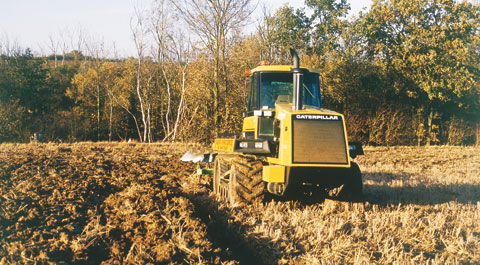
Traditional steel tracks offer efficient traction and reduced soil damage but they are also slow, noisy and restricted to off-road travel.
The steel-reinforced rubber tracks introduced by Caterpillar retained the tracklayer’s good points while competing with rubber tyres for performance on the road.
Said to be the biggest tracklayer development for more that 50 years, rubber tracks are now increasingly used on harvesters and other machinery.
INNOVATION:Continuously variable transmission
MAKER:Fendt Vario 926, 1995
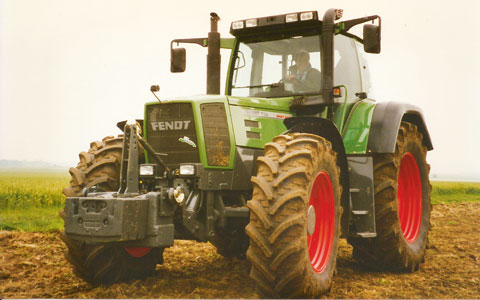
Powershifts were the transmission success story until continuously variable transmissions (CVTs) arrived in 1995.
The first company with a production tractor with a CVT was Fendt with its 260hp 926 Vario model, but other German companies (including ZF) were also working on similar drive systems.
Since then CVTs have become a popular choice and are available in most tractor ranges in the 150hp-plus sector.
More on this topic:tractor tests and reviews

